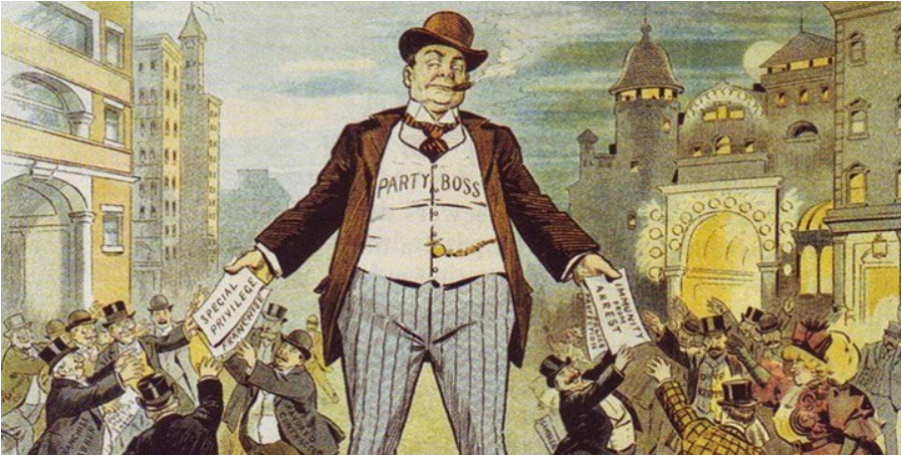
It’s great to hear that the right wing bigots that seized power in Bolivia last year seem willing to respect the outcome of the election and step down. Their government never had any legitimacy, nor was it going to help the working class, the indigenous, the women of Bolivia, and the many otherwise marginalized groups in the country.
At the same time, it is easy to forget how and why the situation arose in the first place, and how MAS, Movimiento al Socialismo, ended up in a weak enough position for this to happen to begin with. First, there are of course great financial and political interests that want to see any ostensibly leftist governments throughout central and south America fail – not least the USA. This is a given, but it is also not enough of an explanation. Blaming everything on external factors is a sure fire way of not learning anything from the mistakes and processes that most certainly contributed to the crisis.
When MAS formed at the end of the 1990s, Bolivia already had a checkered past in terms of social movements and electoral politics. So MAS was not a naive attempt at parliamentary politics, but a conscious attempt to try doing it while avoiding the pitfalls of co-opting and paralyzing social movements. MAS was supposed to be the “political instrument” of the social movements, not their replacement.
How did it go? To start with, it is important to acknowledge that even given its limitations, MAS was able to do what no neoliberal government has managed in terms of actual improvements in the living standards of Bolivian people. Poverty rates decreased, including for the indigenous population, access to healthcare improved, infrastructure was developed, a new constitution acknowledging indigenous rights was passed into law, and the country managed to soften or at least delay the fallout of global crisis of 2008. In this regard MAS is a shining example of what was dubbed “the pink wave” of leftist governments across central and south America.
It is also, unfortunately, instructive of what went wrong with the pink wave in general. While measures like nationalization of natural resources, dismantling of various “free trade” agreements, new constitutions proclaiming the rights of indigenous populations, economic redistribution, and so on, all seemed in line with what was needed and on the surface did indeed improve the situation, the deeper, structural implication of *how* this all came about, and its effect on social movements, would play a big role in the downfall of not only the Bolivian pink tide, but much of the pink tide countries across the continent.
The process of institutionalizing the social movements began almost immediately for MAS. In what might seem as the most democratic thing to do, leading figures from all across the social movements were incorporated into the government. But instead of giving the people more power over their own lives, it only strengthened the government, which, supposedly, would act on behalf of the people. Any structural analysis would show, though, that taking over a ready-made state machinery, as is, and the myriad of institutions within it, is not only a process that will change those that do so, but also a process in which they immediately take on the interests of this state apparatus as their own.
When you’re suddenly in charge of the police, or of nationalized industry, the “stability” of the country, of the economy, and notions such as “law and order” become more important than anything else. As MAS itself became increasingly institutionalized, its ties to the social movements had the ironic effect of more easily dismantling and subsuming them under the umbrella of the state. Instead of inciting a vibrant counter-power that would hold the government to their promises and pose a real working class grass roots politics against what at best could be a politics of compromise from those in power, the figureheads incorporated in the state served to legitimize it, and cast doubt over those that were not happy with its programs and actions. An increasing cult of personality around Evo Morales did not help the matter either.
But what then, more concretely, were the problems with all this? Alongside the political incorporation of the social movements, went an economical counterpart. It is true that inequality was decreased through redistribution, and this in itself is great, but the way this was done served to further paralyze the social movements. The leaders and movements were bought off by subsidies, resources and jobs, rather than given power to self organize. They became economically dependent on the government, rather than encouraged to build and expand their own strength and autonomy.
Side by side with these readjustments, MAS also moved from the radical slogans of its pre-election days to increasingly far-reaching compromises with the Santa Cruz-based Bolivian latifunda – the rich land owners. This process completely derailed the earlier efforts of meaningful land reform. In line with the other developments, rather than empowering people and give them resources to organize their own life, it sought compromise with land owners and resource extractors, consolidated power in the government, and kept people happy enough with resource redistribution programs from above.
This also led MAS from a position of radical ecological reforms and a pro-indigenous position, to one which was largely in line with the interests of the landowners and the extraction industries. In some regards, these industries – some now owned by the state itself – could gain greater benefits than under earlier neoliberal governments, because the resistance of the social movements was contained. This is all strikingly similar to the so-called “national developmentism” which the Brazilian workers party, PT, administered during roughly the same time.
The commodity boom of the early 2000s, with extractive and export industries such as soy, iron ore, etc, generated money and resources which could be used for social programs. The method for keeping the population content thus depended on local as well as global economic growth, which in turn was largely based on environmentally detrmimental extraction. For many, the final straw was TIPNIS, the huge highway project that would take indigenous land, as well as parts of a national park for the purpose of building a highway. Protests against this project were met with repression in 2011.
This left-wing extractivism, with its resource redistribution and economic growth, also created a new growing middle class, which ironically did not feel great allegiance to the social movements or really even to the MAS, and in a way undermined part of their electoral and social movement base. When the economic boom was over, pink tide governments tied up in global extraction markets found it hard to keep up their social programs, and thus started to lose support even in their former core sectors within the population.
These are some of the processes that led to the situation in Bolivia, which serves as an example of a larger trend within the pink tide governments. So as MAS seems to come back to power, what have we, or they, learned, and what can we expect going forward?
Movimiento al Socialismo means, quite literally, Movement towards socialism. To me, such a movement or activity is best defined in the words of the old Solidarity group, as:
Meaningful action [is] whatever increases the confidence, the autonomy, the initiative, the participation, the solidarity, the equalitarian tendencies and the self -activity of the masses and whatever assists in their demystification. Sterile and harmful action is whatever reinforces the passivity of the masses, their apathy, their cynicism, their differentiation through hierarchy, their alienation, their reliance on others to do things for them and the degree to which they can therefore be manipulated by others – even by those allegedly acting on their behalf.
Understood in these terms, a meaningful movement for socialism can never exist in parliaments. There, only a distorted image of it can take hold, and if social movements aren’t watchful, they will take that image for their own appearance, and trade their own subjectivity for the subjectivity of the distortion. Seen that way, MAS is not the solution, it is not even the road. It is simply the restoration of at least some basic human dignity, and a call to action in order to organize the actual movement towards socialism, in our streets, neighbourhoods and places of work.
References and further resources:
https://overcast.fm/+dXFLoUouk (The Intercept podcast on the 2019 coup and crisis)
https://socialistproject.ca/2019/10/bolivian-horizons-interview-with-pablo-solon/
https://nacla.org/news/2019/11/13/bolivia-path-camacho-interview-morales
https://towardfreedom.org/story/kristallnacht-in-bolivia/
https://loveandragemedia.org/2019/11/12/bolivia-the-extreme-right-takes-advantage-of-a-popular-uprising/

